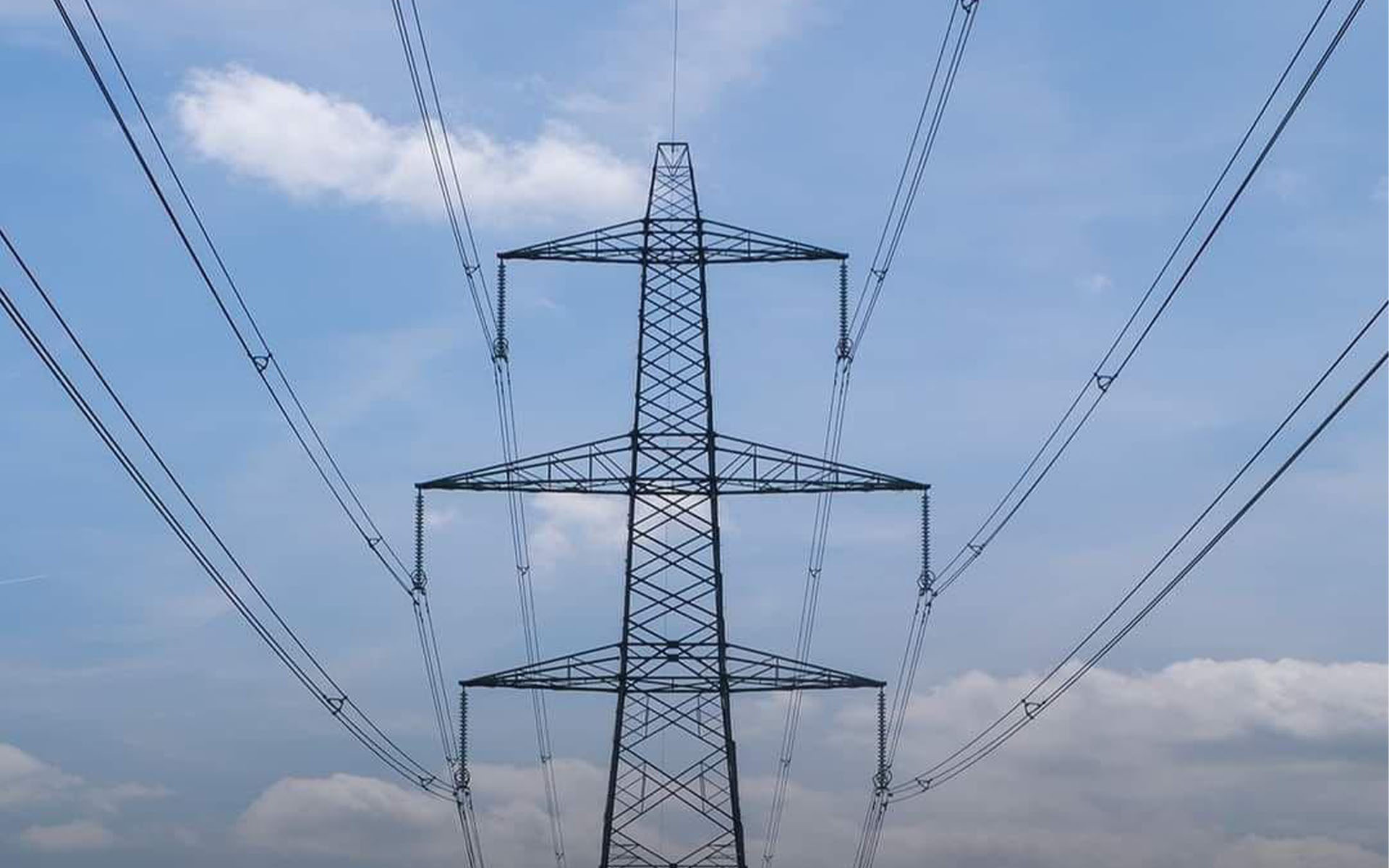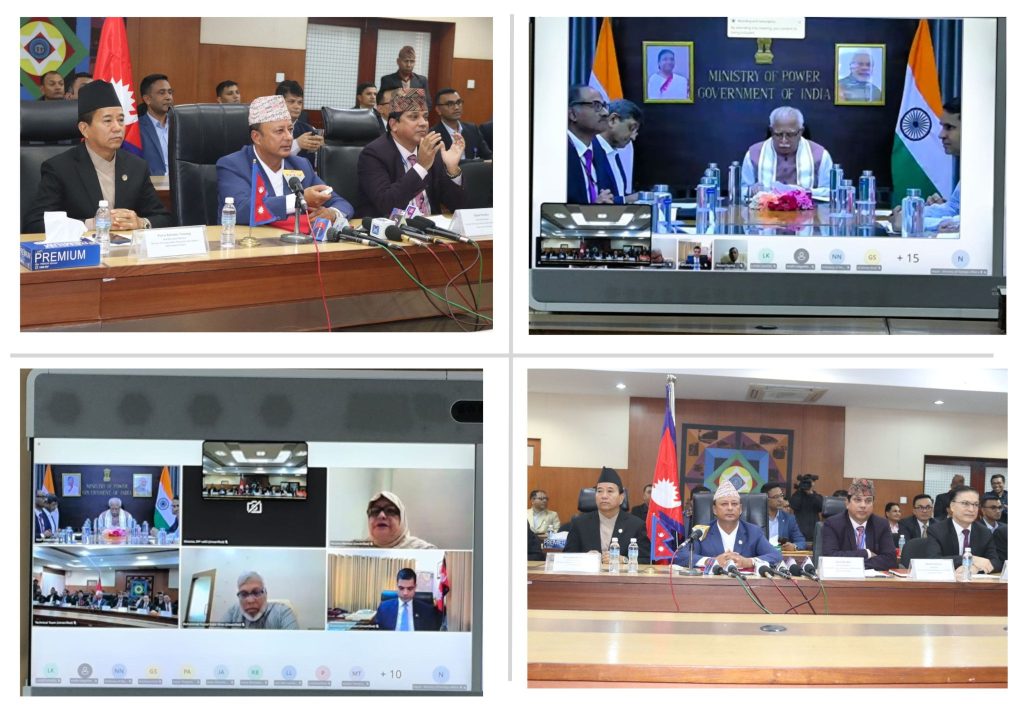
After beginning to export electricity through the Indian grid to Bangladesh for 12 hours for the first time, marking a milestone for both countries in electricity trade on July 15 last year, Nepal has now resumed exporting 40 MW of electricity to Bangladesh. On June 15, 2025, Nepal exported electricity to Bangladesh via India, signifying a positive sign of sub-regional cooperation in South Asia.
The Nepal Electricity Authority (NEA) sells clean hydroelectric power to the Bangladesh Power Development Board (BPDB) through NTPC Vidyut Vyapar Nigam Limited, India’s state-owned power trading company. This export, aligned with Nepal’s surplus during the monsoon season, will continue until November 15. Over this five-month period, Nepal will export 146.88 million units of electricity, earning an estimated Rs. 1.29 billion.
Nepal’s Ambassador to Bangladesh, Ghanshyam Bhandari, said that Nepal and Bangladesh were able to finalize the electricity export deal six years after signing an MoU on power sector cooperation in 2018.
“The trilateral agreement (Nepal-Bangladesh-India), signed on 3 October last year (2024), stipulates that 40 megawatts of hydroelectricity will be exported from Nepal to Bangladesh through Indian transmission lines for five months—from mid-June to mid-November—every year,” Ambassador Bhandari said, while adding, “Nepal will transmit power through the 400 kV Dhalkebar-Muzaffarpur cross-border transmission line, and India will then deliver the equivalent amount to Bangladesh via the Bahrampur (India)–Bheramara (Bangladesh) transmission line.”

Nepal and Bangladesh are among the closest neighbours in South Asia. They have shared close and cordial relations since 1972, following the establishment of diplomatic ties. Nepal supported Bangladesh’s struggle for independence during the Liberation War of 1971. That same year, Bangladesh became independent, and Nepal was one of the first countries to recognize it as a sovereign nation. Previously, Bangladesh was known as East Pakistan, one of the two states created when British India was divided into India and Pakistan in 1947.
Nepal and Bangladesh not only enjoy bilateral ties but also cooperate in sub-regional, regional, and multilateral forums. Both countries are members of SAARC and BIMSTEC and are also part of BBIN, the sub-regional initiative. They collaborate at the United Nations as well.
Since last year, Nepal and Bangladesh have elevated their cordial relationship to include energy cooperation. From the opening of the Kakarbhitta-Phulbari-Banglabandha transit route in 1997 to now exporting and importing electricity, the relationship has significantly evolved over time.
Bangladesh has allowed Nepal to use port facilities at Mongla and has also provided an additional rail transit corridor via Rohanpur (Bangladesh)–Singhabad (India), reflecting the mutual trust between the two nations.
During Nepal’s Prime Minister Sher Bahadur Deuba’s official visit to India in April 2022, Nepal and India agreed in principle to involve Bangladesh in energy cooperation by issuing a Joint Vision Statement on Power Sector Cooperation. That document laid the foundation for trilateral cooperation among Nepal, India, and Bangladesh. Nepal and Bangladesh successfully convinced India to allow electricity exports via its transmission infrastructure.
Bangladesh’s Prime Minister, Sheikh Hasina, during her visit to India in April 2017, requested Indian Prime Minister Narendra Modi to facilitate cross-border power sector cooperation with Nepal. On the other hand, Nepal’s Prime Ministers have repeatedly urged Modi during official visits to support Nepal-Bangladesh electricity trade.
As a result, both Nepal and Bangladesh—with India’s support—agreed to export 40 megawatts (MW) of electricity through India’s existing transmission network starting last year. This was a milestone achievement in sub-regional energy cooperation.
Former Foreign Minister Bimala Rai Poudyal remarked that the export of 40 MW of electricity to Bangladesh is just the beginning of Nepal’s exporting capabilities. Speaking about Nepal’s broader export potential, she highlighted how this step benefits Nepal’s economic diplomacy.
She added, “This is also a success of Nepal’s diplomacy because the export was only possible via India, and all three countries agreed on this agenda.” She further noted that Nepal has the capacity to export more energy to India and other countries in the future.
However, she stressed that Nepal would benefit even more if it reduced its reliance on fossil fuels and increased the use of electricity domestically.